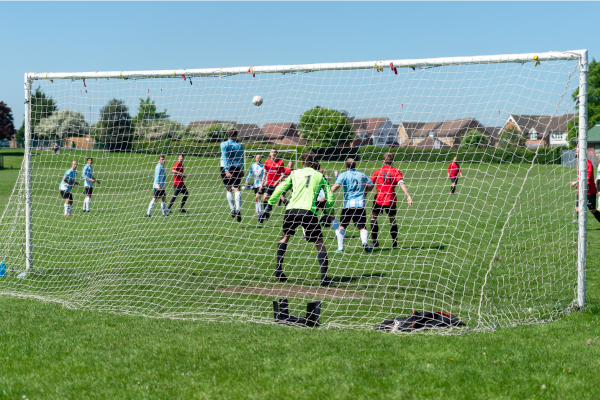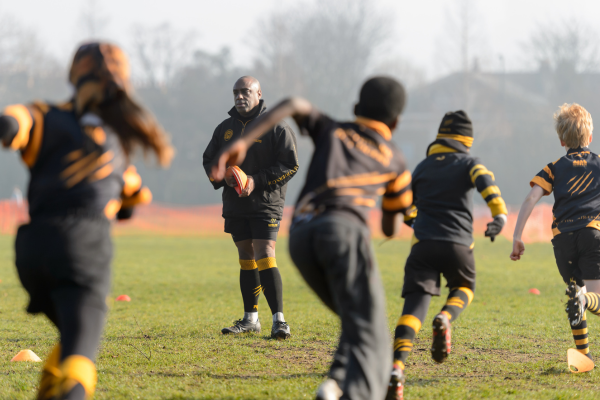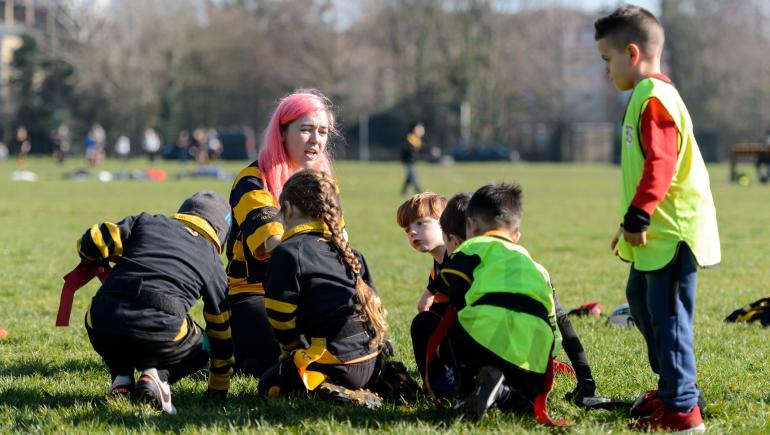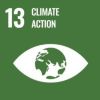Grassroots and community sport “risks becoming elitist” – with many under-served communities denied access to the wider health and economic benefits of sport and physical activity – if action is not taken to stem the growing threats from climate change, according to new research.
Alma Economics was recently commissioned by the Department for Culture, Media & Sport (DCMS) to assess the financial and environmental challenges climate change poses to grassroots sport in the UK. The research analysed both the impacts of grassroots sport on the environment, and the current and potential future impacts of climate change on grassroots sport.
The resulting report identifies a £320million annual financial impact on grassroots sport due to adverse and extreme weather events. It also says that other further costs, not captured in this assessment, are “likely to be large”.
PARTICIPATION
In particular, the report states that the prospect of declining participation – for example due to poor-quality playing areas, and shortened or delayed matches due to weather conditions – is likely to have a “significant impact on the health and wellbeing of the population”, which could lead to an even greater burden on the public health costs.
It adds: “Furthermore, there are likely to be differentiated effects for more vulnerable groups. Low socio-economic groups, older people, children, and those with disabilities or health conditions are the most impacted by climate change.
“These groups also often lack access to sporting facilities and live in highly polluted areas, which limits their ability to participate in sport. All these factors can lead to reduced physical activity, as unpredictable scheduling and suboptimal playing conditions make it harder for people to participate in sports consistently.”

In its conclusions, the report states: “If no action is taken, grassroots sport risks becoming elitist.
“As community sport clubs struggle to absorb the financial burden imposed by climate change, they may be forced to increase membership fees to remain afloat. This would make grassroots sport less accessible, limit wider community participation, and change the nature of the sector.”
Jo Deagle, Environmental Sustainability Lead for Sported which supports a network of 5,000 grassroots sports clubs and community groups across the UK, said the knock-on effect of declining participation due to climate change could be “critical” for some the wider issues that sport and physical activity are addressing every day in communities such as health and wellbeing, social isolation, and crime or anti-social behaviour.
POSTPONE
“Sported’s research shows one-third of community groups were impacted by climate change within a six-month period,” she told ConnectSport.
“The consequence in many cases is they had to postpone or cancel activities - or saw participants dropping out. That’s a critical issue within disadvantaged communities when tackling issues like social isolation, building the confidence of teenage girls, or positively affecting those at risk from violence and crime.”
Just over half (51%) of Sported's network operates in the most deprived areas of the UK, while 62% are entirely volunteer-led and one third have an annual income of under £10,000. 98% work with under-represented communities in sport.

“This means the community sport sector is likely to be more exposed to climate change and less able to adapt to or mitigate these impacts,” said Jo. “When these groups aren't able to deliver due to flooding, intense heat, poor water and air quality etc, we can expect negative repercussions for the one million lives they reach.”
Clubs and organisations with Sported's network consider environmental sustainability a priority, according to Jo. “They tell us that in order to take climate action, adapt or mitigate climate change, key solutions include funding, accessible and relatable education and a two-way dialogue with decision-makers.
“Typically, community groups do not own facilities and therefore are at the will of local authorities or landlords. Sported’s role is to equip our network with the contacts, knowledge and skills so that they are in a position to have their voices heard and form collaborative partnerships that generate positive impact.”
SUSTAINABILITY
Jo revealed: “One solution is a new online network established by Sported so that local organisations can learn from each other, better understand the challenges they face, and share the solutions they want to see. We also sit on Sport England's Environmental Sustainability External Reference Group, providing a route for these key insights from the grassroots sector to inform government strategy and investment priorities.”
She concluded: “As the DCMS report states, more research is vital. We need to fully understand what climate change means for groups who provide sport and physical activity for the benefit of their wider community and for those for whom sport is a lifeline. We need to ensure the solutions being proposed by professional and elite sports, as well as other sectors that impact community sport, are informed by the very people they are trying to help.”
Read the research ‘Exploring the financial implications of climate change on grassroots sport’
'Getting started with environmental sustainability' - read advice and guidance from Sported.











